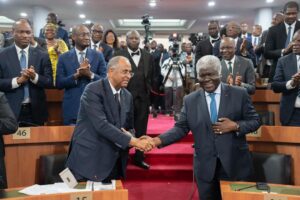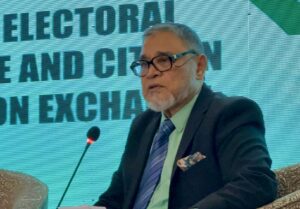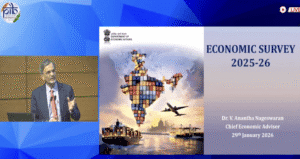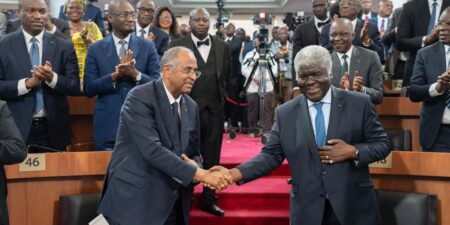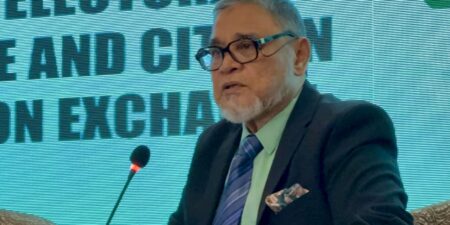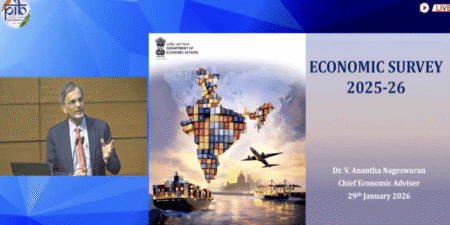
Cambodia’s Crackdown on Online Scams Balances Sovereignty and Strategic Cooperation
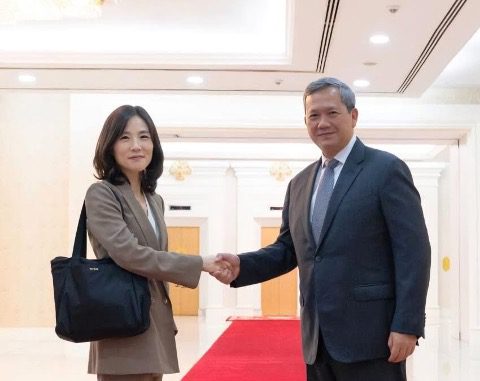
The BGA Cambodia team, led by Managing Director Bora Chhay, wrote an update to clients on Cambodia’s crackdown on online scams.
Context
- Cambodia has mounted one of Southeast Asia’s most extensive crackdowns on online scams and transnational crime over the past year,arresting over 5,000 suspects and dismantling 92 scam sites across the country. The campaign, led by Prime Minister Hun Manet through the Commission for Combating Online Scams (CCOS) and the National Counter-Cybercrime Committee (NCCC), has become both a domestic reform milestone and a statement of national sovereignty.
- The crackdown unfolded amid ongoing diplomatic pressure from neighboring and major powers for Cambodia to demonstrate control over cross-border scam networks. Rather than yielding to external direction, Phnom Penh has pursued a sovereign, self-driven approach, prioritizing national enforcement while maintaining cooperation with China, Association of Southeast Asian Nations (ASEAN) members, Korea and other partners.Reaffirming this stance, Hun Manet said, “Cambodia does not need any neighboring country to carry out such work on its behalf.”
- Cambodia formalized its national cybercrime response in February through coordination between the CCOS and NCCC. This mechanism institutionalizes collaboration among the ministries of Interior, Justice, Post and Telecommunications and Foreign Affairs, along with the national police and the Anti-Cybercrime Department. The framework enables a whole-of-government approach to tackle cyber incidents and ensure that policy, investigations, prosecutions and diplomatic channels are synchronized in addressing both domestic and transnational cyber threats.
Significance
- More than 5,000 arrests were made, and 92 scams were foiled from October 2024 to October 2025, including major operations in Sihanoukville, Phnom Penh, Poipet and Bavet. Thousands of phones, computers and passports were seized, marking the region’s largest documented campaign against cyber-enabled crime. The operation, coordinated by the CCOS and the NCCC, was directed under Prime Minister Hun Manet, who linked enforcement to administrative reform. “Failure to comply or cooperate will be subject to evaluation when considering appointments, transfers or terminations,” Hun Manet warned in July. The directive signaled zero tolerance for negligence or complicity within the enforcement chain and reinforced the central government’s control over the nationwide campaign.
- Hun Manet met with Korean Vice Foreign Minister Kim Jin-ah in Phnom Penh October 16 following the death of a Korean national tied to scam operations. He pledged that Cambodia would “apprehend the suspect and protect Koreans in Cambodia.” Kim urged Cambodia to take stronger action. Both sides agreed to strengthen cooperation on crime prevention and victim protection, illustrating Cambodia’s ability to balance between independence and partnership.
- Cambodia expanded its cybercrime and anti-scam cooperation from May to October through a series of memorandums of understanding, amendments and joint action with regional and global partners. Key developments include memorandums of understanding with Singapore (July) and Indonesia (May), an amended police cooperation agreement with the Philippines (September) and strengthened coordination with Thailand, Laos and Vietnam. Cambodia also deepened collaboration with China, Korea and Malaysia through repatriation, training and cybersecurity dialogues.
Implications
- At the global level, efforts from the United States and United Kingdom to target cybercriminal networks in Southeast Asia, described as coordinated with international partners, coincided with Cambodia’s domestic campaign, to which Cambodia affirmed its readiness for law-enforcement cooperation. The Ministry of Interior reiterated that “Cambodia does not protect individuals who violate the law,” affirming its readiness to cooperate through formal legal channels. Although no formal memorandums of understanding exist, the parallel timing and shared objectives indicate practical convergence between Cambodia’s domestic crackdown and global enforcement priorities.
- At the multilateral level, Cambodia is an active participant in ASEAN’s Action Plan on Cybersecurity Cooperation (2026-2035), aligning national measures with regional digital resilience goals. The country also collaborates with United Nations Office on Drugs and Crime on transnational organized crime frameworks and with Interpol on investigations into cyber-enabled fraud. This engagement not only improves Cambodia’s technical capacities but also signals its commitment to international norms and data governance standards, positioning the country as a responsible stakeholder in regional cyber governance.
- The campaign has demonstrated measurable progress in regulatory consistency, institutional accountability, predictability and evidence-based enforcement, marking a shift from reactive governance to assertive, cooperative problem-solving. It has also strengthened Cambodia’s economic and diplomatic standing. Consistent enforcement signals stability to investors, and managing cooperation on sovereign terms demonstrates diplomatic confidence and positions the country as a credible, self-reliant regional partner.
We will continue to keep you updated on developments in Cambodia as they occur. If you have any comments or questions, please contact BGA Cambodia Managing Director Bora Chhay at bchhay@bowergroupasia.com.
Best regards,
BGA Cambodia Team

Bora Chhay
Managing Director
Bora leads BGA’s practice in Cambodia. He is a highly regarded government affairs and public policy expert who helps clients resolve business issues, navigate regulatory and legal challenges, expand operations, explore new investment opportunities and enter Cambodia’s market. Prior to joining BGA, Bora served for five years as a fast-moving consumer goods (FMCG) corporate and regulatory affairs professional. In this role, he helped transform his company’s government relations and corporate affairs unit into a more effective business-driven group. Notwithstanding Cambodia’s difficult and highly regulated macro environment, Bora played a key role in developing and executing government relations and corporate affairs ... Read More
×


















